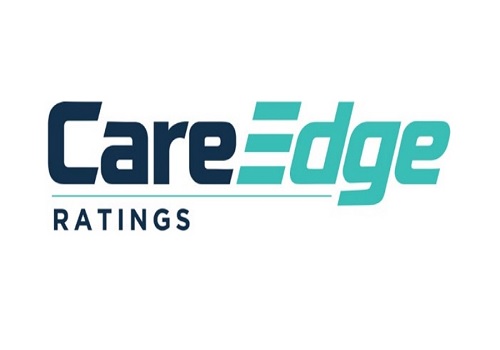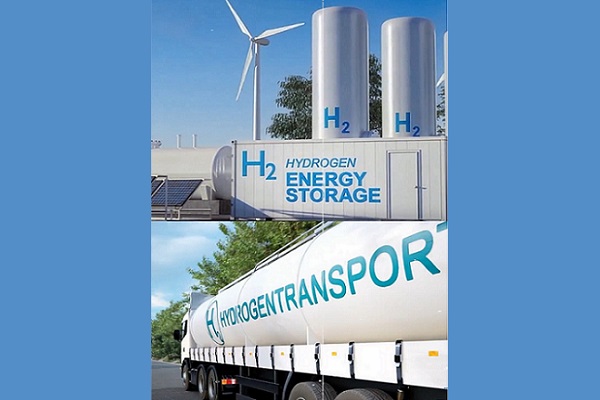Brace Port Logistics coming with IPO to raise Rs 24.41 crore

Brace Port Logistics
- Brace Port Logistics is coming out with initial public offering (IPO) of 30,51,200 shares in a price band Rs 76-80 per equity share.
- The issue will open for subscription on August 19, 2024 and will close on August 21, 2024.
- The shares will be listed on NSE Emerge Platform.
- The face value of the share is Rs 10 and is priced 7.6 times of its face value on the lower side and 8 times on the higher side.
- Book running lead manager to the issue is Holani Consultants.
- Compliance Officer for the issue is Megha Verma.
Profile of the company
The company is a service-based logistics company primarily engaged in the business of providing Ocean cargo logistics services to its clients operating in the various sectors of the economy. It also provides various value-added services like Air Freight, Warehousing facilities, special cargo services such as handling cargo in foreign country and delivery the same in other foreign country and custom clearance services. The company along with its group companies and holding company has an extensive network across the globe. It provides its services at a worldwide level where it caters for clients across the globe and even provides cross-border shipment facilities as well.
Its team comprises of trained and experienced professionals and has had the rich industry expertise of its promoters for more than two decades. Its holding company is leading player in air cargo industry in India. It aims is to provide highly optimized and customized supply chain solutions to its customers with unified technology systems.
It has a strong pan-India and global network to meet the needs of its customers across a wide range of industries including medical supplies and pharma, sports goods, perishables, electronics, consumer durables and automotive etc. Its experienced team can handle all logistics movements using advanced systems and processes to overcome any challenges. It is flexible in its approach to managing the supply chains effectively, along with the identification of the best routes to move shipments and at best pricing options.
Proceed is being used for:
- Funding the working capital requirements of the company
- General corporate purposes
Industry Overview
The logistics industry is essential for the economy of a country. It pertains to the general method of controlling how resources are obtained, housed and delivered to their ultimate location. It is a differentiating sector that can largely affect any country’s exports, thereby adding a significant competitive edge, with the underlying assumption of a robust logistics sector. The logistics industry comprises all supply chain activities, mainly transportation, inventory management, flow of information and customer service. It determines the success of not only the country’s supply chain but also influences it on a global scale.
While India is a very small market in global express industry with less than 2% of the global market size, India has one of the fastest growing express industry. The Indian express industry started in very unorganized way few centuries ago, where traders used to send urgent and high value cargo to destination by ‘Angadia’ i.e., someone who carriers the high value cargo with him in person. The first organized player to start its operation in India was Government of India itself. Government launched Speed Post in 1980. Subsequently, in 1980s, few international express companies entered the Indian market in joint venture with Indian companies. DHL started operation in India in the year 1979 to help make exports easier for SMEs. Whereas, FedEx started its operation in 1984 in India. TNT had started its services much later in 2006. UPS entered India in the year 2001 with its acquisition of Fritz Inc in 2001.
Indian Express Industry has come a long way in last four decades and evolved in terms of product offering & service quality. In the last decade segments like e?commerce and on demand logistics have changed the complete paradigm of the sector. Outlook of the sector is very positive and CAGR is expected to be more than 15% in next decade. By year 2025 its market size is estimated to be around $10 billion. In future, digitization and automation will be prerequisite of express business. Technology will not remain as enabler, instead it will be driving processes, efficiency & optimization. Whole range of new technologies from data analytics to automation to quantum computing and 3D printing will be instrumental in growth.
Pros and strengths
Long lasting business relationships: It focuses on building sustained and long-term client relationships with its clients and constantly tries to cater their needs with services in demand. It has a strong history of working with globally renowned companies. It generates a majority of its revenue from the repetitive business provided by its clients, which is a testament to its endeavor to establish and maintaining long-lasting relationships with all of its clients.
Comprehensive Solutions for transportation requirements: It provides comprehensive third-party logistics services through transportation and warehousing at competitive rates. It provides end to end customize logistics solutions for its customers. Its logistic offerings like cross-border freight transportation and other value-added services allows its customers with cross selling opportunities.
Diverse customer base across many sectors: Its customer base spans across many sectors including retail and consumer goods, Healthcare, Manufacturing, Automotive, Food and Beverages, Energy and Utilities etc. It has a diversified customer base in each of these sectors. It serves including Indian Corporate Groups and Multi-National Corporations. It is well positioned in the logistics industry in India, given its diverse services it provides which suited to serve a wide range of sectors. Over the years it has built strong customer relations by demonstrating the value propositions which position it for expected further growth.
Risks and concerns
Depend on certain key customers: It depends on a limited number of customers, which exposes it to a high risk of customer concentration. Fluctuations in the performance of the industries in which certain of its customers operate may result in a loss of customers, a decrease in the volume of work it undertakes or the price at which it offers its services. It cannot assures that it shall generate the same quantum of business, or any business at all, from these customers, and loss of business from one or more of them may adversely affect its revenues and profitability.
Does not have Custom House Agent (CHA) license: Its main business is providing logistics services to companies operating in the various sectors of the economy. The company also provides various value-added services like Air Freight, Marine Freight, and warehousing facilities. It does not have any CHA license in its name which is used for entry or departure of a conveyance or the import or export of goods at any Customs Station as there are various third-party license holders who can do the job on fixed price basis. It relies on third parties for CHA services. Any delay in the service by CHA Agency may affect delivery of its goods and it may have to compensate its customers for the loss if any. Any such event may affect its result of operations and future prospects.
Depend upon third parties to provide services: Being a third-party logistics provider, it does not own or control the transportation assets that deliver its customers’ cargo and it does not employ the people directly involved in delivering the cargo. It is dependent it independent third parties to provide freight services (truck, rail, ocean and air) and to report certain events to it including delivery information and freight claims. This reliance could cause delays in reporting certain events, including recognizing revenue and claims. It depends upon third parties to provide services which may result in delays in delivering the cargo/service on time, which in turn may lead to customer dissatisfaction and loss of further business.
Outlook
Brace Port Logistics is a service-based logistics company primarily engaged in the business of providing Ocean cargo logistics services to its clients operating in the various sectors of the economy. It also provides various value-added services like Air Freight, Warehousing facilities, special cargo services such as handling cargo in foreign country and delivery the same in other foreign country and custom clearance services. On the concern side, the logistics market is very competitive. There are many bigger groups operating in the industry and they compete with each other on key attributes such as technical competence, quality of services, customer base, pricing and timely delivery. These bigger groups are far ahead in terms of technical know-how, capital adequacy, availability of financial resources, skilled labour and better industry experience. Increasing competition may result in a decline in its market share and may affect its profit margins which may adversely affect its business operations and its financial conditions.
The company is coming out with a maiden IPO of 30,51,200 equity shares of Rs 10 each. The issue has been offered in a price band of Rs 76-80 per equity share. The aggregate size of the offer is around Rs 23.19 crore to Rs 24.41 crore based on lower and upper price band respectively. On performance front, revenue from services has decreased by 21.93% to Rs 5,500.43 lakh in fiscal year ended March 31, 2024 from 7,045.35 lakh in fiscal year ended March 31, 2023. Profit after tax has decreased by 20.86% from Rs 618.09 lakh in the fiscal year ended March 31, 2023 to Rs 489.13 lakh in the fiscal year ended March 31, 2024. Meanwhile, it intends to cater to the increasing demand of its existing customers by increasing the offices across the globe to increase the reach of its services. Enhancing its presence in additional regions will enable it to reach out to a larger market. Its strong presence in domestic and international markets will help it to capitalize on the potential market in the logistics industry and to curb the cost of hiring third party agents it hires in other countries, which results in high profit margins for the company.
























